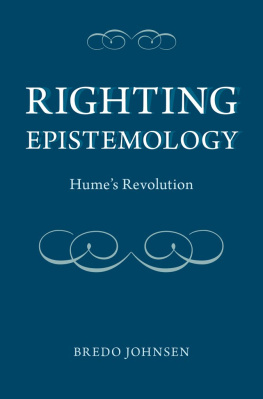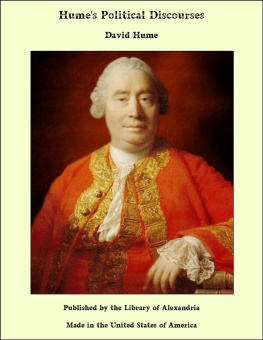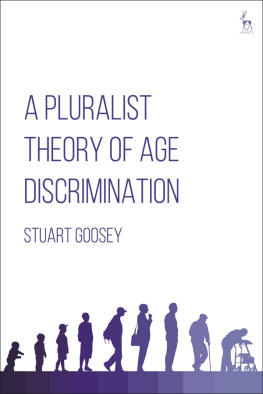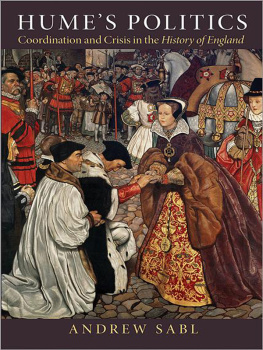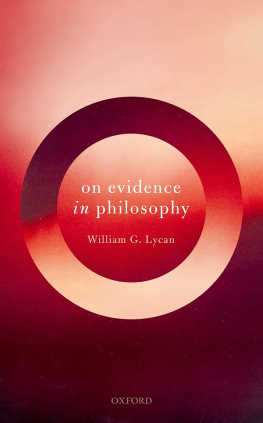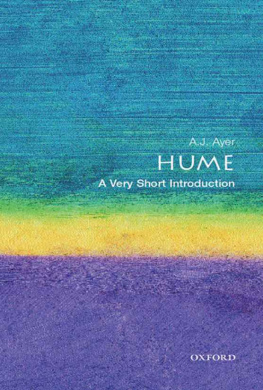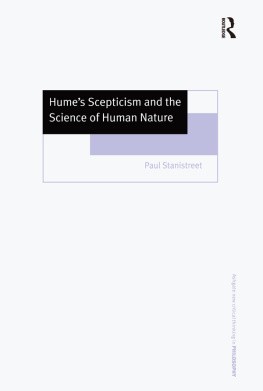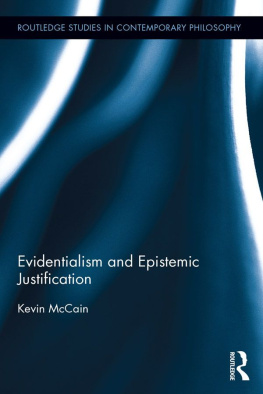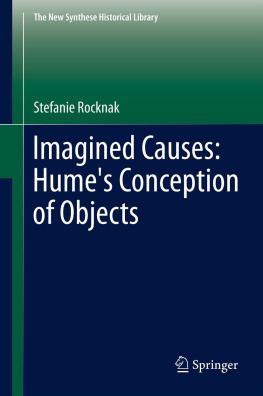Righting Epistemology

Oxford University Press is a department of the University of Oxford. It furthers the Universitys objective of excellence in research, scholarship, and education by publishing worldwide. Oxford is a registered trade mark of Oxford University Press in the UK and certain other countries.
Published in the United States of America by Oxford University Press
198 Madison Avenue, New York, NY 10016, United States of America.
Oxford University Press 2017
All rights reserved. No part of this publication may be reproduced, stored in a retrieval system, or transmitted, in any form or by any means, without the prior permission in writing of Oxford University Press, or as expressly permitted by law, by license, or under terms agreed with the appropriate reproduction rights organization. Inquiries concerning reproduction outside the scope of the above should be sent to the Rights Department, Oxford University Press, at the address above.
You must not circulate this work in any other form and you must impose this same condition on any acquirer.
CIP data is on file at the Library of Congress
ISBN 9780190662776
eISBN 9780190662790
In memory of
Anita
Contents
THE HEART of this book is an account of a historic epistemological revolution with an astonishing and depressing history. David Hume showed early in the eighteenth century that no theory about the nature of the physical world has any probability relative to our observational and memorial knowledge of bits of it, and this meant that we needed an entirely new way of understanding epistemic justification; the difference between justified and unjustified theories about the world could no longer be thought of as a matter of their differing probabilities relative to our evidence.
Nor did he stop there. So far is Hume from being the great skeptic of philosophical lore he proffered what would come to be known two centuries later as the reflective equilibrium theory of epistemic justification.
Regrettably, no one noticed, but in the twentieth century three distinguished philosophersSir Karl Popper, Nelson Goodman, and W. V. Quinebecame persuaded of the soundness of Humes underlying argument and set about rethinking epistemic justification.
After considering the work of Hume, Popper, Goodman, and Quine, I propose an extension of reflective equilibrium theory that is implicit in Quines epistemology. I argue that the extended theory is a completely general theory of epistemic justification for beliefs about the existence and nature of any physical world there may be, and that Quines three predecessors would quite certainly have endorsed it.
Other chapters address Sextus Empiricuss Outlines of Pyrrhonism I argue, inter alia, that Sextus is no skeptic, but rather a radical fallibilist concerning our beliefs about the world; that Descartess Meditation I has been badly misread as underwriting something called Cartesian skepticism; that the Humean argument should be recognized as the argument for radical skepticism within the classical tradition that he rejected; and that Wittgensteins protracted struggles in On Certainty can be seen to be leading him in the direction of a view much like Quines. More generally, these chapters do something by way of noting important relationships among these philosophers, and providing some historical and systematic context for Humes revolution.
In the appendices I argue that two significant recent attacks on skepticism fail: Hilary Putnams arguments that we cannot be brains in a vat, or even in a situation fully analogous to theirs, and Fred Dretskes version of contextualism. Putnams arguments simply fail on their own terms, and Dretskes view, though a promising version of contextualism, poses no threat to skepticism. I discuss them primarily to identify their failings, but also to underscore the fact that the possible truth of radical skeptical hypotheses has no epistemologically significant consequences; our beliefs are justified if they belong to certain kinds of bodies of beliefs that are in reflective equilibrium, and knowledge is simply of no epistemological interest on any extant conception of it.
I have benefited greatly from relationships with many teachers, colleagues, and students, beginning with the Wayne State University and Harvard University faculties of the 1960s. For most of my career, Roger Wertheimer has been the closest reader, sharpest critic, and most generous supporter of my work, and M. G. (Bob) Yoes, Jr., whose understanding of Goodman and Quine ran deep, was an inspiring colleague from the outset. Others for whose criticism, enlightenment, and encouragement I am grateful include Yuval Avnur, Jonathan Bennett, Lars Bergstrm, Joshua Brown, Richard Cartwright, Hector-Neri Castaeda, Ted Cohen, John Cooper, Russell Dancy, Fred Dretske, Catherine Elgin, Alireza Fatollahi, Carl Feierabend, Roderick Firth, Edmund Gettier, James Garson, Eric Gilbertson, Dane Gogoshin, Nelson Goodman, Gilbert Harman, Colin Howson, Alistair Isaac, Keith Lehrer, Benson Mates, John McNees, Robert Nozick, David Pears, John Perry, David Phillips, Alvin Plantinga, Lawrence Powers, W. V. Quine, David Sanford, Robert Sleigh, Gail Caldwell Stine, Tamara Tabo, Bas van Fraassen, Mary Viers, and Joshua Weisber.
Thomas Reids comment on Humes argument and purportedly consequent skepticism captures a common view of them:
A traveller of good judgment may mistake his way, and be unawares led into a wrong track; but, when it ends in a coal-pit, it requires no great judgment to know that he hath gone wrong, nor perhaps to find out what misled him.
See his Inquiry and Essays, edited by Keith Lehrer and R. E. Beanblossom (Indianapolis: Bobbs-Merrill, 1975), 11 .
David Hume, A Treatise of Human Nature (London, 17391740) .
David Hume, An Enquiry Concerning Human Understanding (London, 1748) .
Colin Howson, Humes Problem (Oxford: Oxford University Press, 2000) .
Sextus Empiricus, Outlines of Pyrrhonism, translated by Benson Mates, in his The Skeptic Way (Oxford: Oxford University Press, 1996) .
The Philosophical Works of Descartes, translated by Elizabeth S. Haldane and G. R. T. Ross (Cambridge: Cambridge University Press, 1967) .
(hereafter PH) constitute one of the most striking passages in the history of philosophy:
When people search for something, the likely outcome is that either they find it or, not finding it, they accept that it cannot be found, or they continue to search. So also in the case of what is sought in philosophy, I think, some people have claimed to have found the truth, others have asserted that it cannot be apprehended, and others are still searching. Those who think that they have found it are the Dogmatists, properly so calledfor example, the followers of Aristotle and Epicurus, the Stoics, and certain others. The followers of Cleitomachus and Carneades, as well as other Academics, have asserted that it cannot be apprehended. The Skeptics continue to search. Hence it is with reason that the main types of philosophy are thought to be three in number: the Dogmatic, the Academic, and the Skeptic.reporting, like a chronicler, what now appears to us to be the case. (I, 14)
The Skeptic Way is a disposition to oppose phenomena [things that appear] and noumena [things that are thought] to one another in any way whatever, with the result that we are brought first to

